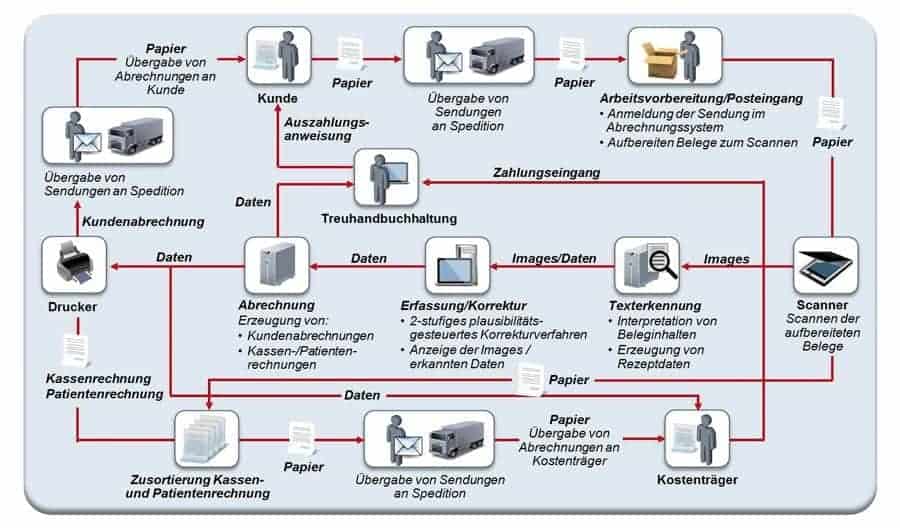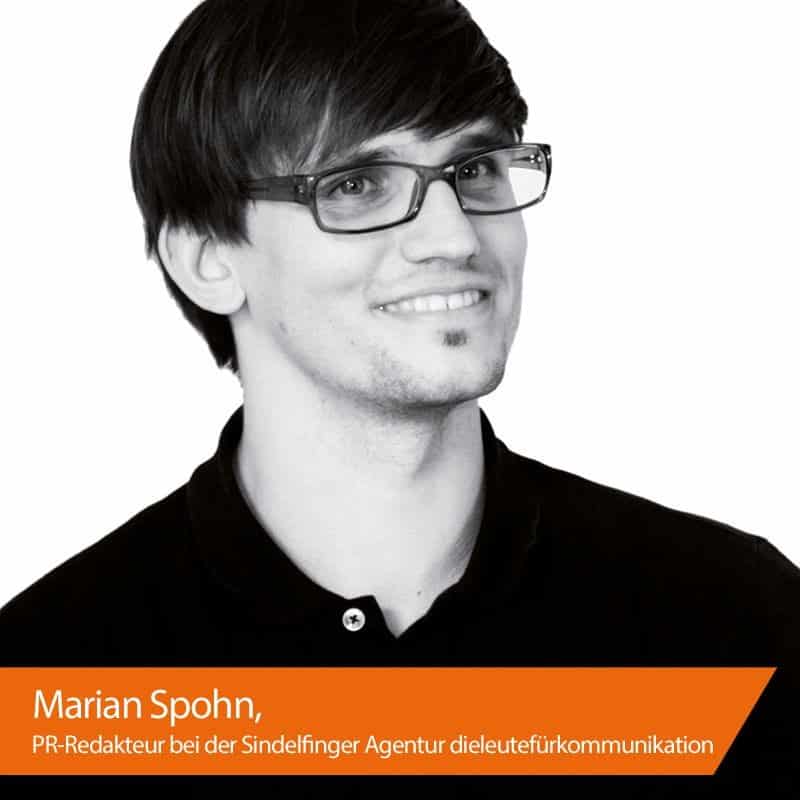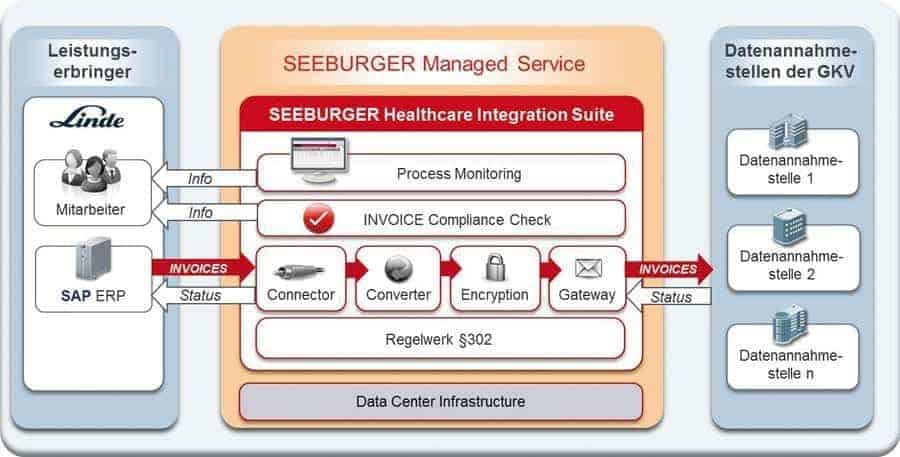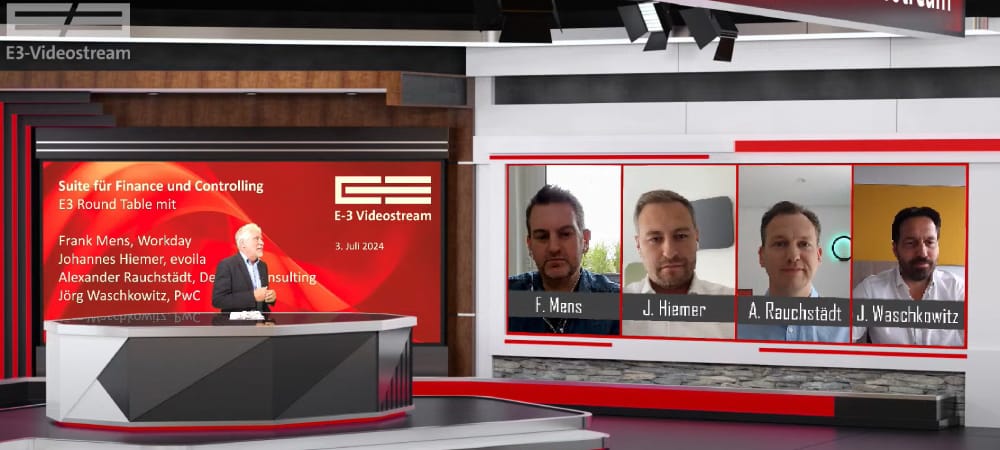Managed Invoice Service §302 simplifies prescription billing process


Medical service providers must bill prescriptions to the 145 statutory health insurers (GKV) in Germany in electronic form. For example, providers of medical aids must comply with a complex process in accordance with Section 302 SGB V.
This is why many service providers outsource this electronic billing to specialized billing service providers. However, Linde Healthcare Germany, a provider of medical gases, associated medical products and services, wanted to save the high costs incurred by this outsourcing of billing.
An alternative solution was therefore sought for the prescription billing process that would also harmonize with the SAP landscape used worldwide. Seeburger's Managed Invoice Service §302 for prescription billing fulfills both requirements.
"The overall prescription billing process is very complicated and time-consuming. Especially when an invoice provider is involved, who creates electronic invoices from paper invoices. At this point, it makes sense to make the process more direct and simpler and, if possible, to automate it in order to save costs"
explains Andreas Judt, Head of Business Unit Healthcare DACH, Seeburger.
A study by A.T. Kearney also recognizes this complexity as an enormous cost factor in the healthcare sector. For example, in addition to the electronic invoice, all paper invoices and their accompanying documents must also be transferred to the SHI system for prescription billing.
At the same time, the SHI data collection points have different technical specifications for the service providers as to how the invoice data should look. In addition, incompatible systems and numerous interfaces and isolated solutions disrupt data transfer.

IT solutions are required
From both a technical and financial perspective, these requirements represent a major challenge for suppliers of medical aids such as Linde Healthcare.
Legal restrictions in data protection and constant reassurance as well as the ongoing process of obtaining approvals lead to indirect and slow communication between all parties involved in the process.
"Failure to comply with the legal requirements may result in a general invoice reduction of up to five percent if, for example, the billing data is not transmitted via electronic data transfer or on data carriers that can be used by machines.
The technical specification for the implementation of Section 302 SGB V, with over 100 pages, requires a complex configuration. Added to this are the individual requirements of the health insurance companies and their data collection points. An EDI solution must map all of this"
says Karin Dieckmann, Team Leader Backoffice HC-O-CB Homecare, Linde Healthcare Germany.
Linde Healthcare produces 20,000 invoices for health insurance companies every month. Previously, the company sent the necessary paper documents to a billing provider that specializes in health insurance companies.
The latter generated electronic invoices from the paper and sent them to the data collection points of the health insurance companies.
"The costs incurred by such billing service providers are very high due to the effort involved in handling them. Linde Healthcare was therefore looking for an alternative to the traditional service providers, who all offer similar solutions.
Linde has opted for our Managed Invoice Service §302 because we can provide the outsourcing of electronic invoicing at significantly lower costs and with greater transparency"
says Andreas Judt.

The Managed Invoice Service §302 offers an uncomplicated, direct approach and thus enables high cost reductions. The Seeburger Healthcare Integration Suite is the central instance through which all invoice processes run.
Now the entire transfer of in-house invoices from the SAP ERP system to the data collection points of the respective statutory health insurance providers is fully automated and direct. Suite and SAP environment harmonize without media discontinuity.
The Healthcare Integration Suite is operated as a managed service in the highly secure Karlsruhe data center to ensure that the complex set of rules for the various requirements of the statutory health insurance funds and their data collection points are stored in one place.
There, the invoice data is converted into the required Edifact format and encrypted. In addition, a so-called order file is created. Both files are then sent to the relevant collection points at the cash registers.
"Our previous service provider provided us with the full amount after 25 days and the invoices were booked as paid. However, the cash was not deducted until one to two months later, so we had to reopen the receivables.
This delayed prescription billing enormously. With the new solution, we now use our direct contracts with the health insurance companies. For example, we receive our money after just 17 days without lengthy, complicated accounting processes, which creates a huge time and financial advantage for us"
says Karin Dieckmann.

Better data quality, direct communication
Linde employees now receive immediate feedback on the billing data sent. For example, the Healthcare Integration Suite subjects the invoice data to a compliance check in order to find any errors and report them to Linde immediately.
Feedback from the GKV's data collection points as to whether an invoice has been confirmed or not is also immediate. This allows Linde to make a quick correction. The elimination of the third-party provider is also accompanied by a thorough examination of the quality of the company's own data and internal processes.
"With the Seeburger solution, both our data quality and internal communication between departments have improved enormously"
summarizes Karin Dieckmann.
"On the one hand, this is due to the solution's high level of transparency, and on the other, to the more careful handling of all invoice data."
Direct communication with the health insurance companies means that content errors can be rectified with a quick phone call, without having to send invoices back and wasting time unnecessarily. In addition to lower costs, Linde Healthcare also benefits from improved data quality.
Following the switch from the previous provider to the managed service solution, the project partners are already planning the next expansion step. Linde Healthcare Germany plans to digitally map the order processing and prescription throughput process, which is still largely paper-based today, and to store the data in the ERP and archive system.
In future, this will start at the beginning of the process: from receipt of the prescription from the hospital or prescribing doctor.




